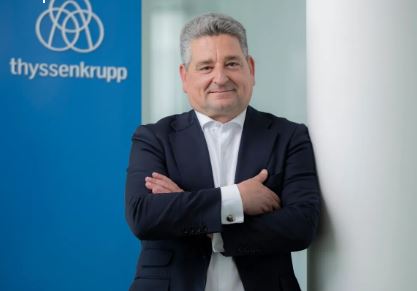Thyssenkrupp faces €1.5 billion loss, while intensifying efforts on transformation
by David Fleschen

Thyssenkrupp announced a net loss of €1.5 billion for the fiscal year 2023/2024, a significant figure but an improvement compared to the €2.1 billion loss reported the previous year. The company attributes this reduction in losses to strategic restructuring efforts and the positive impact of its performance improvement initiatives. Despite persistent financial challenges, particularly in its struggling steel division, Thyssenkrupp remains committed to its long-term transformation goals, including the expansion of its Decarbon Technologies segment, described as "one of the world’s largest and most respected industrial suppliers of cutting-edge technologies for the green transformation."
Financial Struggles and Market Downturn
The company’s financial report highlighted several critical challenges. Sales dropped by 7%, totaling €35.0 billion compared to €37.5 billion the previous year, as subdued demand and falling prices, especially in Steel Europe and Materials Services, took a toll. Adjusted EBIT fell to €567 million, within the company’s forecast but still down from €703 million in the prior year. Thyssenkrupp attributed these losses to a “persistently very challenging market environment,” which has been exacerbated by weak demand from key sectors like the automotive industry, machinery, and construction.
“Our result reflects the difficult economic circumstances, but we managed to achieve a respectable outcome,” said CEO Miguel López. He stressed that the company’s APEX performance program had played a crucial role in softening the blow of adverse market conditions, allowing Thyssenkrupp to achieve its adjusted EBIT target and even surpass its forecast for free cash flow before mergers and acquisitions, which reached €110 million.
Green Steel Ambitions and Mounting Costs
A major pillar of Thyssenkrupp’s future strategy is its ambitious push toward climate-neutral steel production. The company plans to establish a hydrogen-based direct reduction plant in Duisburg, aiming to cut CO2 emissions by up to 30% by 2030 compared to 2018 levels. This initiative has garnered significant government backing, including €1.3 billion from the federal government and €700 million from North Rhine-Westphalia, marking the largest single investment in the state’s history.
However, the path forward is fraught with challenges. Rising costs and delays have cast doubt on the feasibility of the green steel project. CEO Miguel López has raised concerns about unanticipated budget overruns for the direct reduction plant. Despite securing public funding, industry analysts remain skeptical about the long-term viability of green hydrogen as a cost-effective solution, with some experts warning that it could remain prohibitively expensive for years.
Strategic Decisions and Future Outlook
Thyssenkrupp’s future hinges on critical decisions regarding its core business segments. The company is exploring strategic options for Steel Europe, including deepening its partnership with Czech billionaire Daniel Křetínský, who could raise his stake to 50%. In a bid to address ongoing financial constraints, Thyssenkrupp has also intensified restructuring efforts across various divisions, impacting thousands of jobs and leading to tensions between management and employees.
Despite these challenges, Thyssenkrupp remains committed to stabilizing its finances. The company projects an adjusted EBIT of between €600 million and €1 billion for the current fiscal year and anticipates a return to profitability, with net income expected to range from €100 million to €500 million. López described the fiscal year as one of transition, emphasizing the need to improve performance across all divisions while navigating the complexities of transformation.
Source and Photo: Thyssenkrupp

